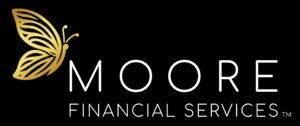
Phobia of public speaking is very real. But, the anxiety that most individuals have about the prospect of addressing a large group is also an unrealistic fear. That’s because public speaking phobia is often a product of speakers not knowing all that’s required to succeed is an ability to relax and approach a speaking engagement with a sense of calm, rather than dread. The first step in overcoming a phobia of public speaking is adopting the right mindset. If it helps, look out on the audience and imagine that everyone in the auditorium is wearing underwear and you are the only one clothed, hardly a situation that is intimidating. But regardless of how you create a mindset it’s important to remember that you’re already in control, because you’re the one who is an expert on an issue and your expertise is so well-respected that you’ve been asked to share it with others. The next step in successfully slaying a phobia of public speaking is knowing how to employ relaxation techniques. And, because techniques will differ, the key is for every speaker to discover the individual techniques that will help him relax. A phobia is defined as an unfounded fear. And never is that more true than when it comes to the phobia of public speaking. That’s because confidence is all that’s really necessary to succeed. Just as thinking you can succeed breeds success, an attitude that you will fail creates the potential that it may become reality.
Public speaking doesn’t have to be such a drag. 1. Record your speech. Try this 3 times before your next speech. You will be amazed! Simply by listening and/or watching yourself deliver the speech, you will be able to make all the tweaks necessary for delivering it more smoothly. 2. Setup Targets. Next time you practice delivering a speech, setup a few items in the room that you can focus on making eye contact with. Be sure to place them all at different levels and locations to demonstrate people sitting in the front of the room, back of the room, and even people standing against side walls. As you speak, try to look at each target for 2-3 seconds, constantly changing targets. This will train you to look your listeners in the eyes; thus exuding confidence, charisma, and expertise in your field. 3. They WANT to hear you. Remember the last time you heard a speaker? You wanted to hear what he or she had to say, didn’t you? In other words, you accepted their presence and looked forward to hearing their message. Keep that in mind next time you have to speak. The audience wants to hear what you have to say. Just by training your mind to think this way, your confidence level will increase next time it’s your turn to speak!
This incorrect focus, mixed with strategies that involve trying to make the symptoms go away, begins to magnify and intensify the symptoms caused by your fear and anxiety. If we attempt to stop our Anxiety or Fear we are suppressing them. They feel they are important in your life and will fight back. The first step to doing this is accepting the feelings as having some legitimacy. We can then examine them and through this find healthier attitudes and habits in the way you go about speaking. Strategies that solve your fear of speaking will include improving your perspective of: who you and your audience are and understanding how to better construct, rehearse and deliver your presentation or speech to your audience. Typically all this is helped through a process called Calming Internal Conflict- a simple process of noticing, describing and making tangible any blocks preventing you from being excited rather than fearful. We acknowledge the block and this allows it to feel like it has been recognised and it therefore finds a proportionate place in your preparation instead of dominating you with symptoms making you feel uncomfortable.
I used to dread speaking in front of a group at school or the workplace. Then finally I said enough is enough! I refuse to live in fear. So I enrolled in a Dale Carnegie public speaking class, and 14 weeks later you couldn’t shut me up. Unfortunately I never joined a weekly speaking club such as Toastmasters to maintain my new-found comfort level. So I joined a weekly Toastmasters club, and 40 speeches later, I earned my Advanced Communicator Gold. And once again you couldn’t shut me up. Action: Dive in the deep end and speak every week at a Toastmasters club. You’ll increase your comfort level and enhance your confidence. Write your speech out and read it in front of a mirror until you’ve pretty much memorized it. Then summarize each section with a bullet point, and using ONLY these bullets as a guide, practice in front of the mirror again. This will keep your speech conversational and you will feel a confidence born of preparation. Ask yourself what confidence looks and sounds like for YOU.
And, have a plan B. And a plan C. And a plan D. Almost anything that can go wrong eventually will. But some things are more likely to go wrong-technology for example. If you have a PowerPoint presentation, have a plan for what you will do if it doesn’t work. You know what your challenges are. What can help? Do you need some water for dry mouth? Room temperature water is probably best for your vocal cords. Do you need a small towel for sweaty palms? If your hands shake maybe small note cards are a better choice than sheets of paper for your speaking notes. If I am driving to a speaking engagement alone, I almost always warm up my vocal cords by singing in the car, either to the radio or, more often the “Do-Re-Mi” song. I also will slide my voice up and down. I do this to improve the quality and range of my voice.
So, don’t apologize – just go with the flow. It’s easier to talk about a topic that you know a lot about. If necessary, do your homework and research your topic extensively so you know it inside and out. Practice your speech in front of your family and friends until you feel comfortable. Practice your expressions and gestures in front of a mirror. Put it all together, and practice some more. Chatting with your audience members as they filter into the conference room, will help to put you at ease. Smile and greet your audience warmly and shake their hands. Then, when you’re on stage, imagine yourself chatting with a group of old friends. Even experienced speakers are nervous just before a speech. Prior to going on stage, take a moment to relax, breathe deeply, and gather your thoughts. Channel your nervous energy into your talk to create a compelling speech. This is an old actor’s trick. Don’t think about how scared and nervous you are before walking out on the stage.
